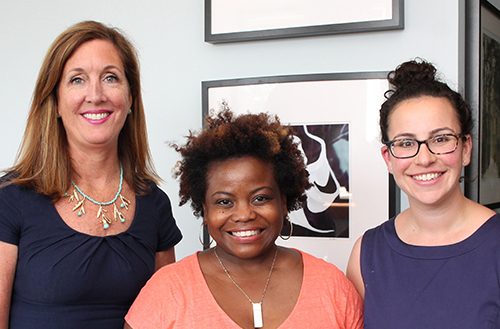RHD’s Lower Merion Counseling Services awarded CCBHC grant

May 1, 2017
RHD is among the first nonprofit organizations in the nation to participate in a new program aimed at improving behavioral health services, with the Certified Community Behavioral Health Clinic (CCBHC) demonstration grant.
The CCBHC grant was given to only eight states, and RHD’s Lower Merion Counseling & Mobile Services was awarded funding for the groundbreaking two-year demonstration program. LMCS is a community-based outpatient mental health treatment center includes psychiatrists and therapists providing comprehensive therapeutic mental health and drug and alcohol services to individuals, families, and groups.

Schedule an appointment
There’s a new procedure for you to schedule therapy appointments – Centralized Scheduling. Centralized Scheduling means we will schedule therapy appointments through the receptionists, only. You will no longer need to contact your therapist to schedule your appointments.
“Increasingly on a national level, health care professionals are realizing the value of understanding that someone’s physical health is very much impacted by their behavioral health,” RHD Senior Vice President of Strategic Business Development Dennis Roberts said. “When the chance came for a crack at creating a new behavioral health service model, we were first in line. We’re all in.”
In December U.S. Department of Health and Human Services granted LMCS To be considered for participation in the demonstration program, more than 170 criteria had to be met — including requirements related to staff, availability and accessibility of services, care coordination, scope of services and quality.
The goals of the demonstration program are threefold: To better integrate behavioral health with physical health care; to increase consistent use of evidence-based practices; and to improve access to high quality care for people with mental and substance use disorders – with overall results leading to better care, smarter spending and healthier people.
“What this opportunity will provide us – at any point of entry – is the integration of services,” LMCS Director Kelly Clarke said.
RHD’s history of innovative services began in the behavioral health field, establishing LMCS in 1970 – it is literally the first RHD program – in response to a community need for outpatient services. Since then, RHD has expanded to meet a variety of needs, utilizing recovery principles in offering services that range from closely supervised housing and intensive inpatient therapy to outpatient counseling and art programs designed for healing through creativity.
The CCBHC grant program is scheduled begin in July, with a two-year span of service during which evaluations based on data from 21 quality measures such as program records, Medicaid claims, managed care encounter data and clinic cost reports will be collected.
“To be a member of a select group of individuals that are going to make a contribution to the improvement of the delivery of behavioral health care services to people across the country is an exciting opportunity,” Roberts said.


